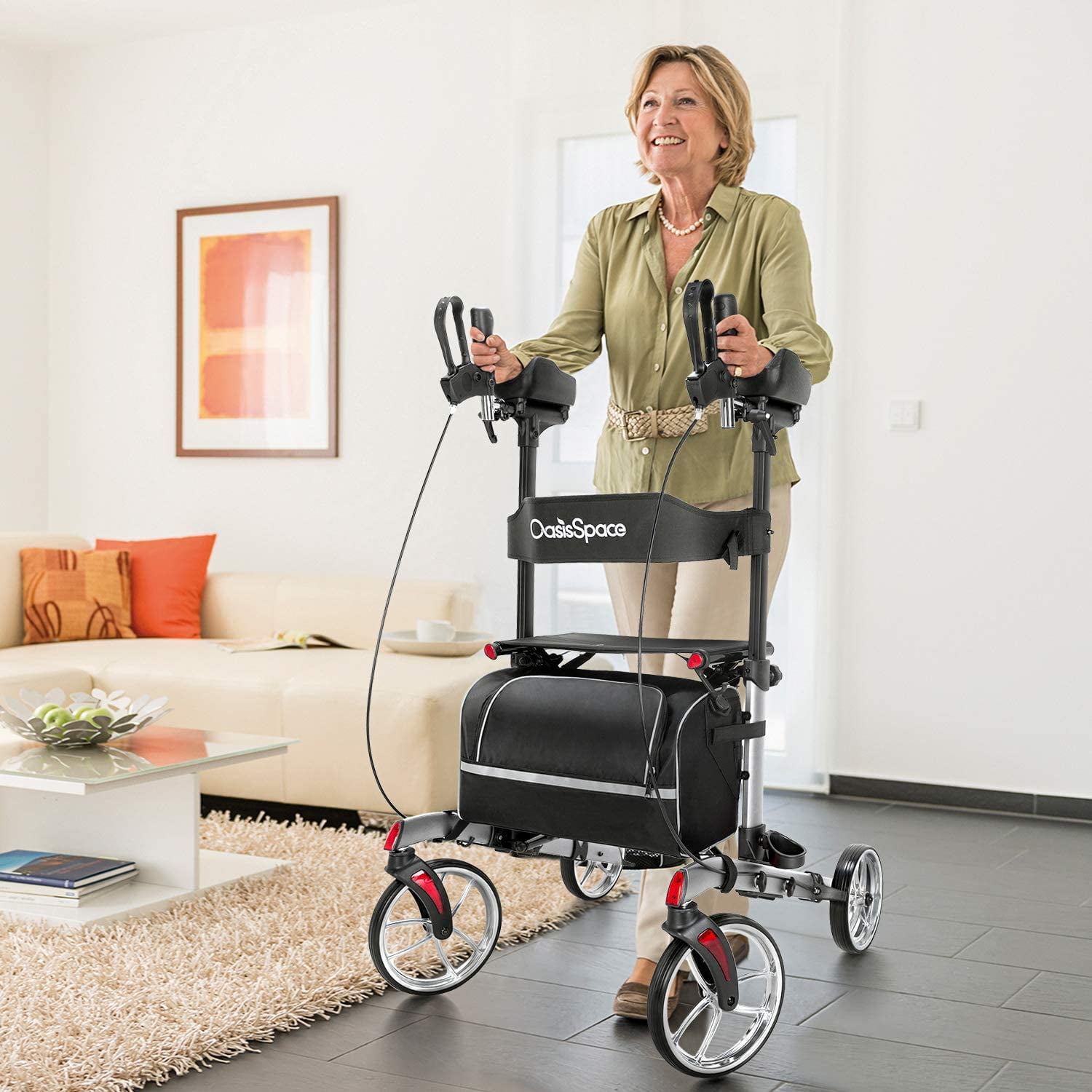Refuses wheelchair
Anonymous
If he was in an over 55 community the security would come and pick him up off the ground. You just call the security office. |
Anonymous
Who is 'we'? You are the only one here who thinks falling, instead of a needed wheelchair, is a great idea. |
Anonymous
That sounds awesome. However, if your parents refuse a needed wheelchair, do you think that they will live in assisted living? |
Anonymous
|
It's so important to continue to exercise and not sit all day. So he needs to try all the tools that can encourage his mobility, while being closely supervised for falls. My MIL has tried them all. She has a light walker for her apartment. She has a walker with a seat for short, accompanied errands outside. And she has a wheelchair for longer outings. She doesn't sit in her wheelchair until she gets tired of walking! She uses the wheelchair like a walker, with someone always at her side, and then she sits in it when she feels tired, and the person accompanying her pushes her home. She has fallen often enough (once breaking her hip), that it's understood she cannot ever be alone. You have to explain to your father that his quality of life, both physical and mental, will increase if he goes out and about, and to do that safely, he has to be always be supervised, and always with means to sit. He can try the walker with seat, or the wheelchair. Supervision doesn't mean being led along like a baby. It means someone is there in case he falls. He doesn't need to make small talk if he doesn't want to. |
Anonymous
| Keep him mobile as long as possible. Look at different walker options, maybe try the kind where you can stand upright. |
Anonymous
| So many of you, adamant on accommodating the irrational. Elders are like toddlers. Often (many) don't have any better reasoning than toddlers. Yes, you respect them but when you are present, at least, you insist on keeping them safe. And making the rational decision. |
Anonymous
| You can’t force him to want to go out just like you can’t force him into a wheelchair. Find the safest, best option he’s willing to use at the present time. Have you presented PT as an option to strengthen muscles so he becomes less of a fall risk? |
Anonymous
Make sure he has a cane that’s appropriate for his size and current physical needs. An off the shelf cane probably isn’t going to be the best option. Have a PT pick one out for him. |
Anonymous


|
Anonymous
Yeah, been there done that. The PT specifically told him not to use the four-legged cane, which of course is the cane he insists on using. |
Anonymous
| You need to accept that he’s not ready for a wheelchair and find some other solutions. There are plenty of options available. |
Anonymous
|
Keep him walking as long as you can. Walking will help prevent decubitus sores and skin break down.
He will decline fast in a wheel chair. He will get skin break down and painful decubitus sores. Keep Dad walking as long as he can. Walking signals life. |
Anonymous
| Be careful what you wish for. We got my dad a deluxe wheelchair and it wound up being bad for him as the caregivers insisted he sit in it all the time to the point where he lost the ability to walk and stand. This was during the height of COVID so we had less over sight. It is now super difficult and expensive to care for him, we are making sure my mom walks several times a day even if it is just thirty feet each time |
Anonymous
Hear that? Simply explain. Then they'll do what you want. Sorry - but my lord. How many times have we explained, the doctor explained, the PT explained, everyone freaking explained, and people are going to do what they want to do. My mom's Parkinson's doctor has been telling her for five years that being active is the best way to preserve as much strength, mobility, and health as she possibly can. She can sometimes be talked into taking a walk around the block - but only if the weather is EXACTLY right. |
Anonymous
|
The patronizing contempt for the elderly in some of these posts is just awful.
The “Cadillac” walkers with brakes and a seat are popular with the disabled elderly I know. Don’t forget also that a shopping cart cart can do double duty as a walker too, albeit without brakes. When considering wheelchairs, remember that there are “wheel” chairs the person can push along by themselves, and “transport” chairs that usually have smaller wheels and require somebody else to push. One advantage of the latter is that they tend to be lighter than a regular wheelchair. That can make a big difference to the companion person. |
